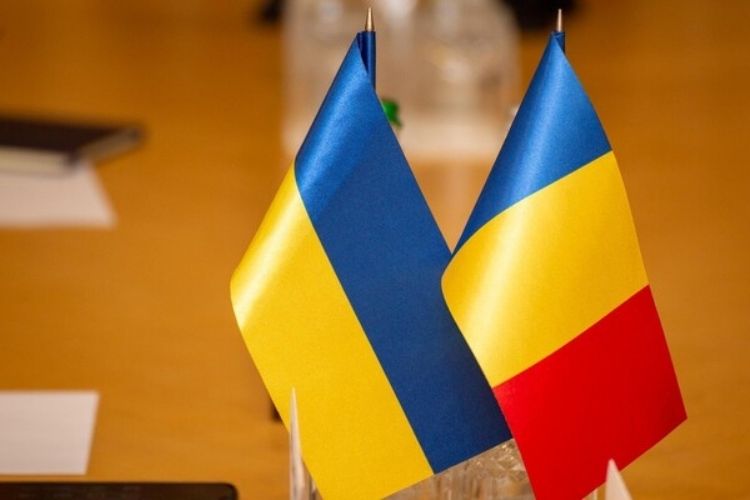Ukraine-Romania: a «reset» in relations
18.02.2021 0 By NS.WriterAuthor: Любов Мельничук
Ukraine and Romania share not only the contiguous border of 613,8 kilometres (including 292,2 km alongside the rivers and 33 km along the sea), but also the common historical and cultural background, and both of the countries have national minorities of each other on their territories.

According to provisional data of the latest population census (held in autumn 2011), there are 51,7 thousand of ethnic Ukrainians living in Romania. (According to the alternative estimation made by the Union of the Ukrainians of Romania, the number of Ukrainian community in Romania exceeds 200,000 people). The Romanian minorities in Ukraine and the Ukrainian minorities living in Romania are the factors for constant interaction between the two countries. It should be noted that the national minority is an important element for effective policymaking.
Most Romanian researchers and experts have concentrated on Romania’s relations with the EU and NATO member-states. Nevertheless, they also study the situation in Ukraine which is just on its way to the above-mentioned organizations. Despite the proximity of Ukraine and Romania, the potential of their bilateral relations has not been fully appreciated, studied and used. These possibilities are limited by the disputes over the common past (the search for «truth») and the inability of the current government to set proper priorities in relations, and in some cases even its being closed.
The most highly debated issues that prevented the countries from moving forward were the protection of the Romanian minority rights in Ukraine and the Ukrainian minority in Romania, the delimitation of the continental shelf in the Black Sea, the construction of a deep-water navigation canal in the Ukrainian part of the Danube Delta, and the situation around the Kryvyi Rih mining and processing industrial complex.
All these disputes arose in the climate of mutual mistrust between the two parties. The Ukrainian authorities suspected that Bucharest was determined to implement the Greater Romania project, questioning the transparency of its intentions; while the Romanian government does not trust the Ukrainian authorities due to the unstable situation within their country.
Over the past few years, there was a reset in the Ukrainian-Romanian relations on the basis of friendship, good-neighborliness, mutual trust and support, while distancing from the complex problems of the past inherited by the parties from the totalitarian regimes. The positive development of the bilateral relations was initiated by the official visit of the Minister for Foreign Affairs of Ukraine P.A. Klimkin to Romania (February 17th, 2015), which soon was confirmed by the results of the official visit of the President of Romania C. Johannis to Ukraine (March 17th, 2015).
The new perception of relations is based on the constructive cooperation and friendship between the two neighboring countries. However, the Ukrainian and Romanian political parties while developing their election programs do not pay much attention to the foreign policy issues of each other. Romanian foreign policy is set by the Ministry of Foreign Affairs and the Presidential Administration. According to Constitution of Ukraine, the Cabinet of Ministers of Ukraine, the Ministry of Foreign Affairs of Ukraine, the diplomatic and consular missions of Ukraine abroad, other ministries and state institutions of Ukraine implementing Ukraine’s foreign policy have to follow the Main Directions of Foreign Policy of Ukraine approved by Verkhovna Rada of Ukraine. The political parties’ lack of concern for foreign policy is also explained by the consensus among Ukrainian and Romanian society regarding the country’s pro-European orientation. Of course, more attention is usually paid to the domestic policy.
The new approach to cooperation with Romania in general, including cooperation with the Ukrainian community in Romania, should be based on the authorities’ support of the minority representatives’ participation in all levels of the initiated radical changes and the process of deep reform of society; the unprecedented solidarity of Romanian society with the Ukrainian people in their fair struggle for the national sovereignty, territorial integrity and inviolability of Ukraine’s borders; Romania’s strong condemnation of the annexation the Autonomous Republic of Crimea by Russian Federation and Moscow’s assistance to the pro-Russian terrorist forces in the eastern parts of Donetsk and Luhansk regions; Bucharest’s encouragement of our country’s European integration aspirations and approach to the Euro-Atlantic space; prompt decision-making on the further application of international sanctions against Russia; creation the information space in Romania favorable for Ukraine, in particular the rejection of the previous criticism of the Ukrainian side for the alleged systemic violations of the Romanian national minority rights in Ukraine with a parallel representation of Romania as a model country for the local Ukrainians.
The awareness of common security threats was the reason for the intensification of bilateral relations. If Romania still did not fully believe in Ukraine’s the pro-Western course chosen by Ukraine and supposed that the Ukrainian governing circles were too dependent on Russia, after annexation of the Crimea and the hostilities in Donbas Bucharest reassessed the challenges.
Adopting its policy towards Romania, Ukraine is focusing on strengthening the security in the Black Sea; limiting strategic advantage of Russia in the Donbas, Crimea and Transnistria; supporting sanctions against Russia; promoting and supporting the European and Euro-Atlantic integration of Ukraine and energy security.
Basing on the conditions mentioned above, Romania defines its interests regarding Ukraine, including limiting Russia’s strategic military advantage in the Donbas, Crimea and Transnistria; implementation of the Association Agreement with the EU; providing conditions to protect the Romanian minority cultural rights.
The publication is carried out in cooperation with Newssky Media Group and the Institute for Democratization and Development.
Публікація здійснюється в рамках співробітництва Newssky Media Group із Інститутом демократизації та розвитку.

